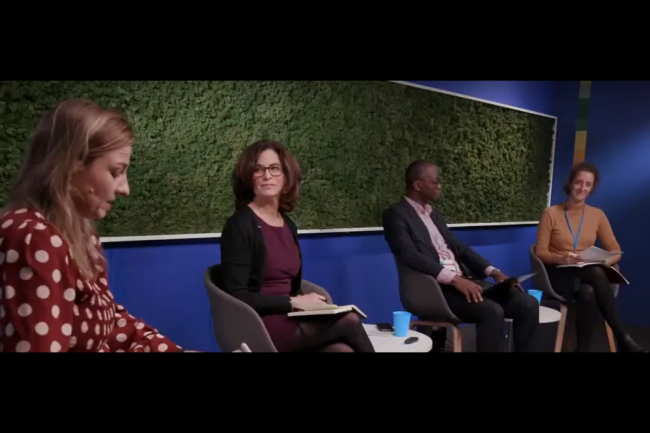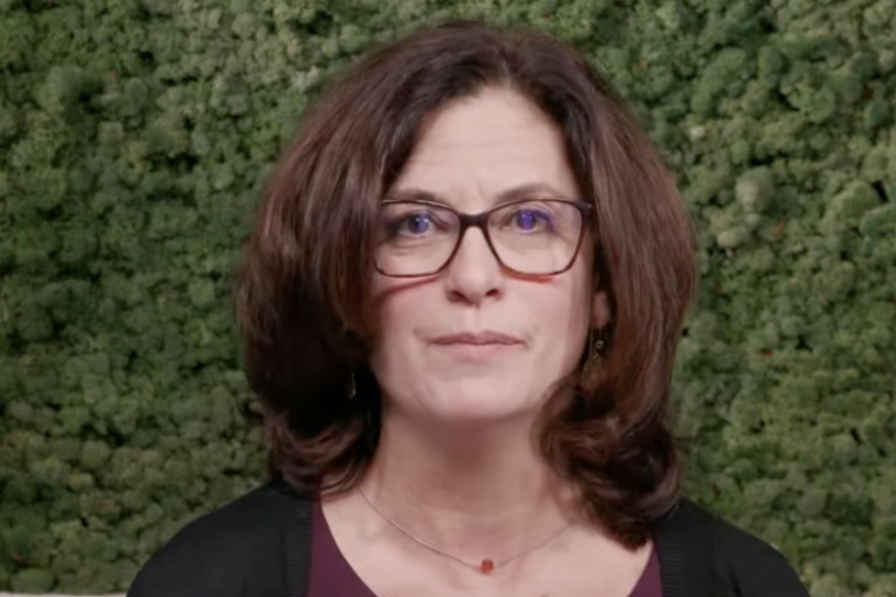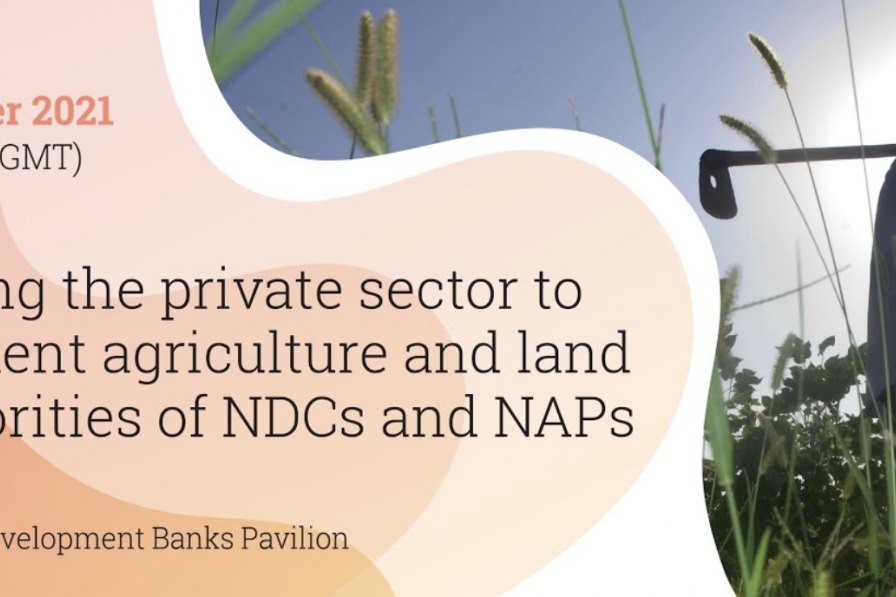Engaging the Private Sector to Implement Agriculture and Land Use Priorities of NDCs and NAPs
Countries may be making new commitments to reduce emissions at COP 26, but an enormous amount of emissions come from the private sector. How can emissions-intensive sectors, like agriculture and land use, decarbonize and how can the private sector help?
Organized by the Scaling up Climate Ambition on Land Use and Agriculture (SCALA) programme, which is jointly run through the Food and Agriculture Organization of the UN (FAO) and the UN Development Programme (UNDP), this event brought together a number of private sector actors in the agriculture and land use sectors to discuss their work in developing public-private partnerships based on Nationally Determined Contributions (NDCs) and National Adaptation Plans (NAPs). The session was moderated by Julia Wolf, FAO.
Birte Derrix, International Climate Initiative (IKI), German Federal Ministry of the Environment, Nature Conservation and Nuclear Safety (BMU), stressed that private sector engagement is required if climate action and finance are to increase. She described the SCALA programme’s work to use NDCs and NAPs as pathways to build adaptation in the land use and agriculture sectors. She noted that, while businesses are stepping up to move their supply chains towards net zero emissions, some persistent challenges for private sector engagement include a lack of enabling environments and missing climate risk information.
Panel Discussion
Neha Rai, FAO, presented on the private sector’s role in meeting the agricultural components of countries’ NDCs. She said NDCs are consistently giving policy signals to engage with the private sector, and that many countries that have updated their mitigation commitment have mentioned a clear goal to engage with businesses in the agriculture sector. She remarked that businesses currently have limited engagement in NDC processes, and that existing regulatory and market barriers are hampering potential public-private partnerships. She noted SCALA’s work in enabling companies to find climate solutions and de-risk instruments that can help them invest in climate action.
Noting the “double importance” of agriculture and land use in Côte d’Ivoire as both a significant source of emissions and a major economic sector, Richemond Assie, NDC Support Programme for Côte d’Ivoire, UNDP, described Côte d’Ivoire’s efforts to work with the private sector to help create early warning systems and build resilience for agricultural producers. He also pointed to his country’s creation of green bonds and experimentation with indexed insurance for producers, and the adoption of climate legislation, which created an enabling environment for the implementation of climate issues in public-private partnerships.
Rebecca Mincy, Acumen Resilient Agriculture Fund (ARAF), described the venture capital fund’s work, which entails investing in businesses that help smallholder farmers adapt to climate change. In addition to raising capital, ARAF measures changes in climate resilience for farmers over time and has worked to help producers adopt climate-smart practices. She stressed that the private sector is no more divorced from the climate than the public sector.
Maria Lettini, Executive Director, FAIRR Initiative, highlighted her initiative’s work as an investor network that helps highlight risks and opportunities related to climate change in agriculture, and provide members with proprietary research to engage in sector-wide emission reductions. She noted that Scope 3 emissions—emissions from further down the value chain than those produced by what a company controls—make up the vast majority of emissions produced by large companies. She celebrated several large fast-food companies’ announcements of net-zero and science-based targets. She also highlighted recurrent issues, such as inconsistent and incomplete disclosures of assets, and the underreporting of emissions.
Tony Siantonas, World Business Council for Sustainable Development, stressed the need for “CEO-level targets” for the private sector related to agriculture and land use. He called for an investment roadmap to help define how companies can invest in climate-smart and regenerative agriculture. He noted examples of work within SCALA countries, such as Thailand, to reduce methane emissions and to seek investments in sustainable agricultural practices. He also highlighted the benefits that can come from engaging with the private sector through countries’ NDCs and NAPs when companies are able to engage with governments, both within and outside of the countries participating in SCALA.
Launch of the Technical Assistance Facility
Srilata Kammila, UNDP, introduced a new private sector Technical Assistance Facility for SCALA. The facility will draw on knowledge gained and lessons learned under SCALA and apply them to non-SCALA countries, allowing those countries to explore different ways to engage with the private sector. She described four pillars of engagement:
- mapping opportunities within NDCs and NAPs, and outreach to the private sector;
- facilitating multistakeholder engagement;
- assessing risk and business opportunities; and
- de-risking and enabling private investments.
She noted that least developed countries will be prioritized in the first round of the Technical Assistance Facility, but that all developing countries will eventually be able to apply for its services.
CONTACT
Rebecca Abi Khalil | Rebecca.AbiKhalil@fao.org
Shanali Pethiyagoda | Shanali.Pethiyagoda@fao.org
MORE INFORMATION
To receive free coverage of global environmental events delivered to your inbox, subscribe to the ENB Update newsletter.







